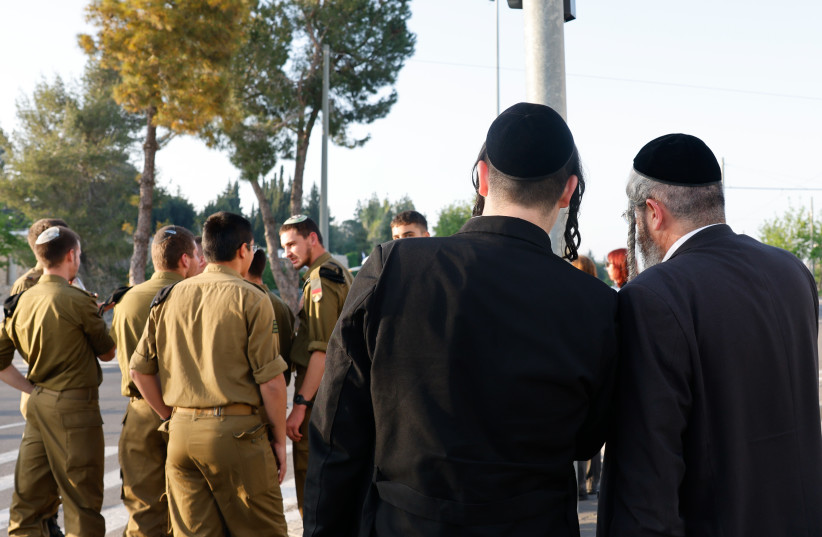The Knesset opened its winter session on Monday with the country facing a reality that no one imagined when it went into recess on July 31.
The Knesset’s winter session opened with the nation at war, reeling from a nightmarish day that changed everything: day-to-day life, the nation’s priorities, our sense of security, our view of the enemy, and our overarching security philosophy.
It also completely upended the nation’s agenda, something that will be reflected in the Knesset’s winter session. Issues that two weeks ago seemed earth-shattering – such as judicial reform – now seem inconsequential.
At least for now. At least when the country is still mourning its dead, still agonizing over the fate of the hostages, still worrying about the regular soldiers on the front lines and the 360,000 reservists called up to reinforce them.
This year’s winter Knesset session will be fundamentally different from all others because, according to the guidelines of the new emergency government, only legislation having to do with the war will be advanced.

Everything else will have to wait until the day after.
Today, it is difficult to imagine a day after, but it will come, and when it does, all the issues that are now being shunted to the side – and rightly so – will return. But they will return to a country with a different perspective.
One such issue is the bill that the prewar Netanyahu government hoped to pass in the current session, formally exempting yeshiva students from military duty. In light of what the country experienced on Simchat Torah, hopefully that bill will be shelved forever, and a new one will be introduced that will make service of some kind mandatory for everyone.
The Simchat Torah massacre and its aftermath have revealed some truths about Israeli society. One such truth is that this country has not reached safe shores, that it is still engaged in a struggle for its existence, that it is still surrounded by those who, in the words of the Book of Esther, want “to destroy, massacre and exterminate all the Jews, young and old, children and women.”
To repel that, everyone is called upon to lend a hand.
The idea that Israel could rely on technological superiority and a small, lean army equipped with state-of-the-art technology has proven mistaken.
Fences with super-sensitive sensors, infrared cameras, and walls that sink down to the waterline do not do the trick. Manpower is needed. One of the reasons proffered for a lack of sufficient IDF presence in the south on that dreadful Simchat Torah morning was that forces were moved to Judea and Samaria to deal with a spike in terrorism there.
Stretched too thin
The IDF is simply stretched too thin.
Israel needs an army big enough that it never again finds itself in a situation where, if it moves troops to deal with a crisis on one front, it leaves another exposed.
It is clear now that Israel does not have the luxury to exempt tens of thousands of able-bodied youth from bearing the national defense burden.
Nor should it want to. With tens of thousands of parents in this country worrying today over the fate of their sons and daughters in harm’s way, the fact that there are other parents without such a burden, and that there are other sons and daughters not risking their lives for the security of the collective, is an inequality that screams to high heaven.
The haredi community has mobilized in recent days to help the soldiers, reservists, and those evacuated from the south. They are at the frontlines in the grisly job of identifying and caring for the bodies. That should be recognized and appreciated.
But with the country clearly facing physical threats, it is simply not enough. The haredi community needs to do its share in ensuring the country’s physical survival.
We appreciate the importance of studying Torah. We realize the Torah’s centrality, its eternal value, and how essential it is for the soul of the Jewish people.
But without a body, there is no soul; without a state, there will be no Torah learning here.
When the country returns to normal, the haredi exemption law needs to disappear. The events of Simchat Torah 2023 have made that painfully clear.
